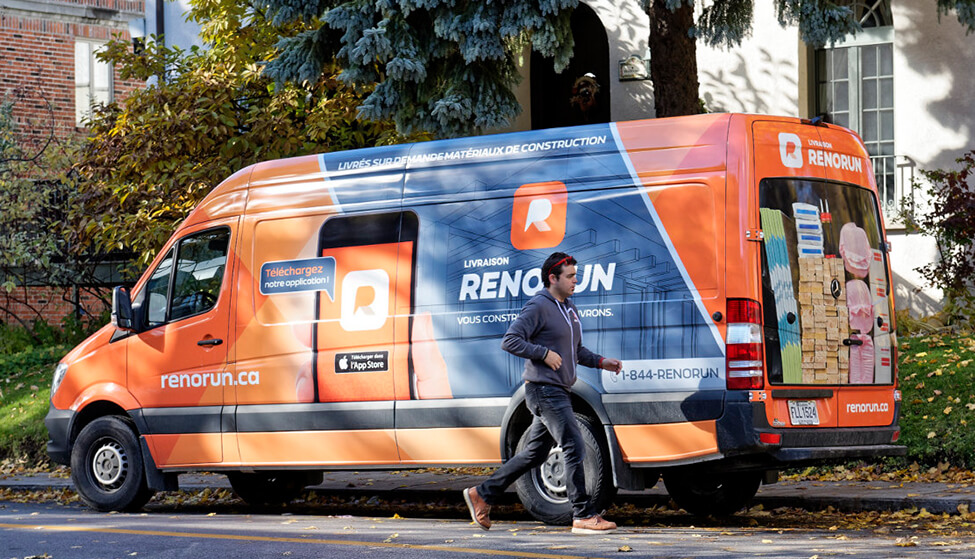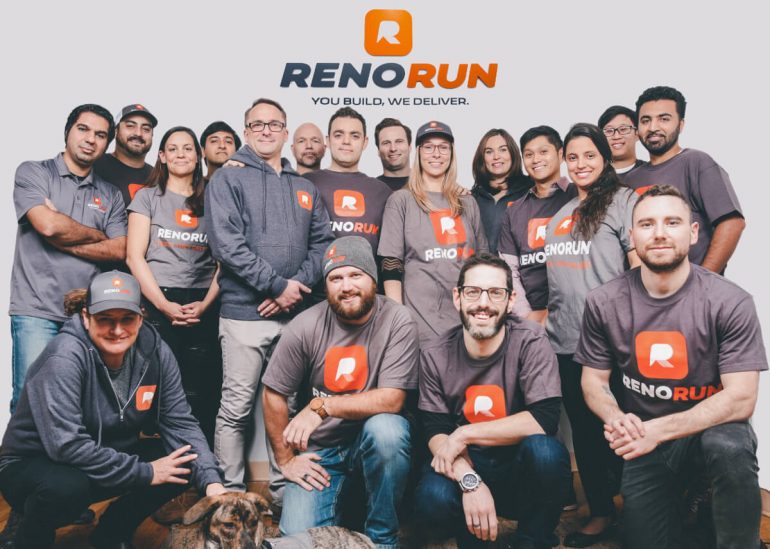It can be hard for early-stage startups to attract the attention of VCs. It becomes much easier when your company’s delivery trucks start showing up at their house.
That was the case for Montréal-based RenoRun, which arrived one day at the doorstep of Real Ventures partner Sam Haffar.
“When we met Sam, he was about 80 percent through a home renovation he was managing himself,” RenoRun founder Eamonn O’Rourke told BetaKit. “When we sat down to speak with him, he knew what I was going to say before I was going to say it. He managed some of his subcontractors on his house, and he was seeing our vans on a daily basis. ‘Who the hell are these guys!’”
“Supply chain in the construction industry is completely broken.”
On the back of that home construction meet cute, RenoRun has closed a $3 million seed round, led by Real Ventures with participation from Toronto-based ScaleUp Ventures (SUV). The company previously had raised a $1 million friends and family round via a convertible note.
RenoRun offers a ‘virtual contractors’ desk, letting general contractors order required building materials and delivering them directly to the job site. O’Rourke claims that RenoRun can fulfill those deliveries in under two hours, which he said is a dramatic improvement for an industry that has struggled to find efficiencies over the years.
“Supply chain in the construction industry is completely broken,” he said. “Home Depot owns 25 percent of the market. The best they can do is deliver in a day or two in an eight-hour window.”
The alternative for many of these contractors is to send one of their own employees to a Home Depot or Lowe’s and grab the materials themselves. That costs time, labour, and headaches as construction workers go from store to store looking for the materials they need.
Instead, RenoRun sources the materials from multiple partners within a given city and consolidates, so contractors know that when they’ve placed an order it’s available. RenoRun also doesn’t take a gig economy approach to fulfillment, hiring fully trained and licensed deliver drivers familiar with the materials and the vehicles needed for transport.
“When somebody places an order with us, we’re not picking up a sandwich or some groceries,” O’Rourke said. “Our average order value is $1,000. So having our drivers trained and with specific product knowledge is very important. The stores absolutely cannot do this themselves.”

RenoRun launched in Montréal in 2017 and quickly expanded to Toronto. The company says it plans to use the money to begin its US expansion, starting first in Austin, with five more cities to follow later this year. RenoRun is also hoping to expand its offering, moving beyond “just in time” material requests to more scheduled deliveries at the start of a construction project, launching the company into a five-figure deal tier. O’Rourke said he is leaning heavily upon his investors to help deliver and execute the playbook.
“For us, having investors that understood the size and scope of the market, and how we wanted to attack it, was really really important,” he said. “It was important that our investors were completely aligned.”
RenoRun’s lead investors at Real and SUV are familiar with the space, having done deals together in another Montréal company, Sonder (formerly Flatbook). While SUV partner Matt Roberts currently does not have any renovation plans to speak of, he does see a lot to like in RenoRun’s roadmap.
“You have a founder that has lived and breathed this problem,” Roberts said. “You have a model that I’m very familiar with from Sonder. You have economics that are understood and easy to build on, and you have an industry that is refusing to bring itself into the 21st Century.”
Roberts indicated that the lessons he and Haffar learned helping Sonder get to the US will pay dividends as RenoRun plans its Austin landing. Nothing is guaranteed, however.
“[Both have] very clear and easy-to-understand economics, but very complicated operational management,” he said. “It requires a very deft hand and a very focused eye to ring out all the margin you can.”
Despite the caution, Roberts remained confident in RenoRun’s basic value proposition over the current way of doing business, noting how often contractors can lose employees for hours just to find out the materials they need aren’t in stock.
“Imagine how frustrating that is for construction professionals.”


